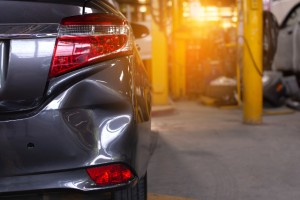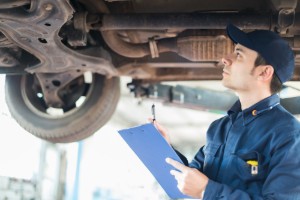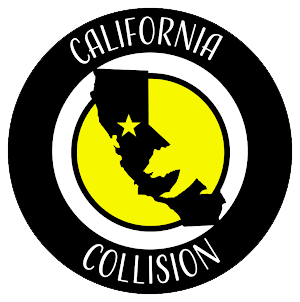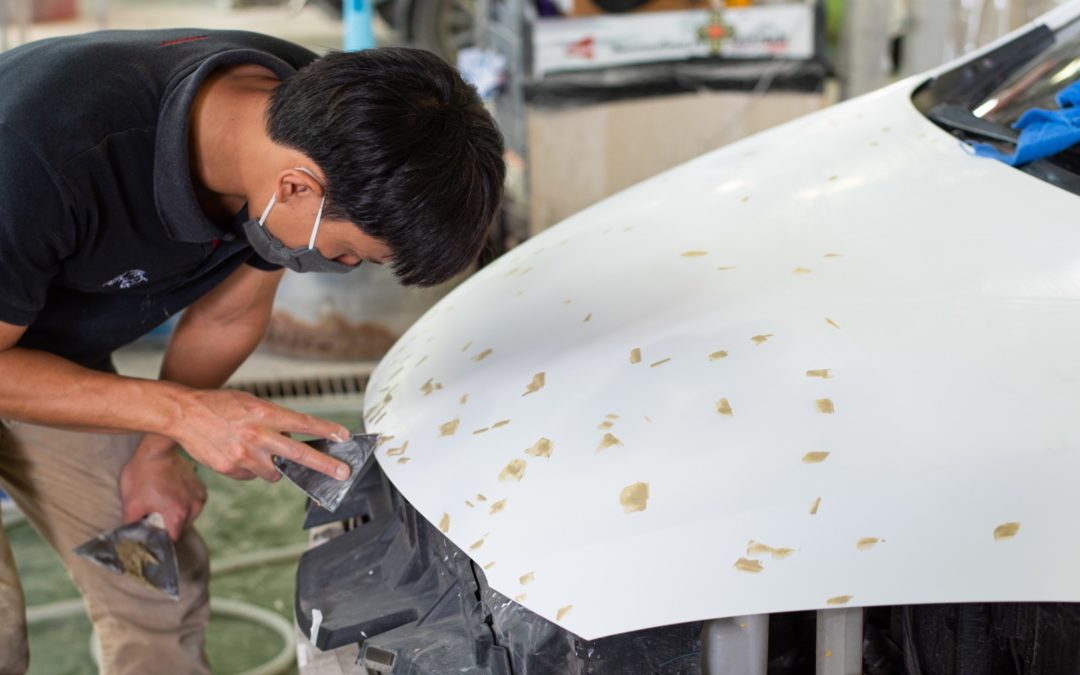The problem with vehicular accidents is that they tend to happen when you least expect it. From the moment you realize that your car has hit something, you are probably already thinking about the long list of responsibilities, such as auto repair, that you have to accomplish. Considering no one got physically hurt, the first order of business would be to deal with the repairs your vehicle needs to get back on track.
Your insurance company will likely provide you with a list of auto collision repair shops that are part of their network. It is not a bad place to start. And, you are likely to find one that has your best interests at heart. That said, it can be a bit confusing to figure out exactly what counts as auto body repair and what doesn’t. Here are just a few things to keep in mind!
On the Topic of Damage that Constitutes an Auto Repair
 The keyword for situations that require the use of a collision repair shop is “damage.” When it boils down to it, it will constitute a repair job if your vehicle is not functioning properly and requires something fixed to get the job done. There is also the issue that stems from superficial damage. Many car owners might think that superficial damage does not really count as auto body repair, and some might even ignore as long as it’s not causing any severe problems.
The keyword for situations that require the use of a collision repair shop is “damage.” When it boils down to it, it will constitute a repair job if your vehicle is not functioning properly and requires something fixed to get the job done. There is also the issue that stems from superficial damage. Many car owners might think that superficial damage does not really count as auto body repair, and some might even ignore as long as it’s not causing any severe problems.
Unfortunately, ignoring what seems to be superficial damage could lead to much bigger problems down the line. From the tiniest dent to damage in the engine, it all constitutes the use of auto collision repair.
The Situations that Do Not Count as Auto Repair
While there are plenty of issues that count as auto body repair, there is still a long list of situations where maintenance is necessary.
Related Content: Auto Body Shop Approved Fall Maintenance Checklist
It does not mean that the vehicle is damaged, but it means that the car will not be able to function as it should until the situation is resolved. Such situations include:
- Maintaining or replacing the brakes
- Adding power-steering fluid
- Having the oil changed in your vehicle
- Dealing with a faulty/dead battery
- Replacing the tires
- Replacing the fuel filter
- Spark plug replacements
- Coolant replacement
Related Content: Types of Auto Body Damage and How They’re Repaired
 While undoubtedly a long list that isn’t included in the auto body repair umbrella, the best part is that the collision repair shop can easily deal with the issues above. It will likely not cost you a fortune to deal with any of the potential issues. However, if you neglect your vehicle, you might have to deal with a multitude at once.
While undoubtedly a long list that isn’t included in the auto body repair umbrella, the best part is that the collision repair shop can easily deal with the issues above. It will likely not cost you a fortune to deal with any of the potential issues. However, if you neglect your vehicle, you might have to deal with a multitude at once.
It can be quite confusing to understand just what constitutes auto repair and what does not. But, you do not have to worry about dealing with trial and error. If your vehicle has sustained any damage from a collision of any sort, then it is safe to assume that it counts as auto body repair. Learn to know the difference between the two, and opt for the right services for your car.

